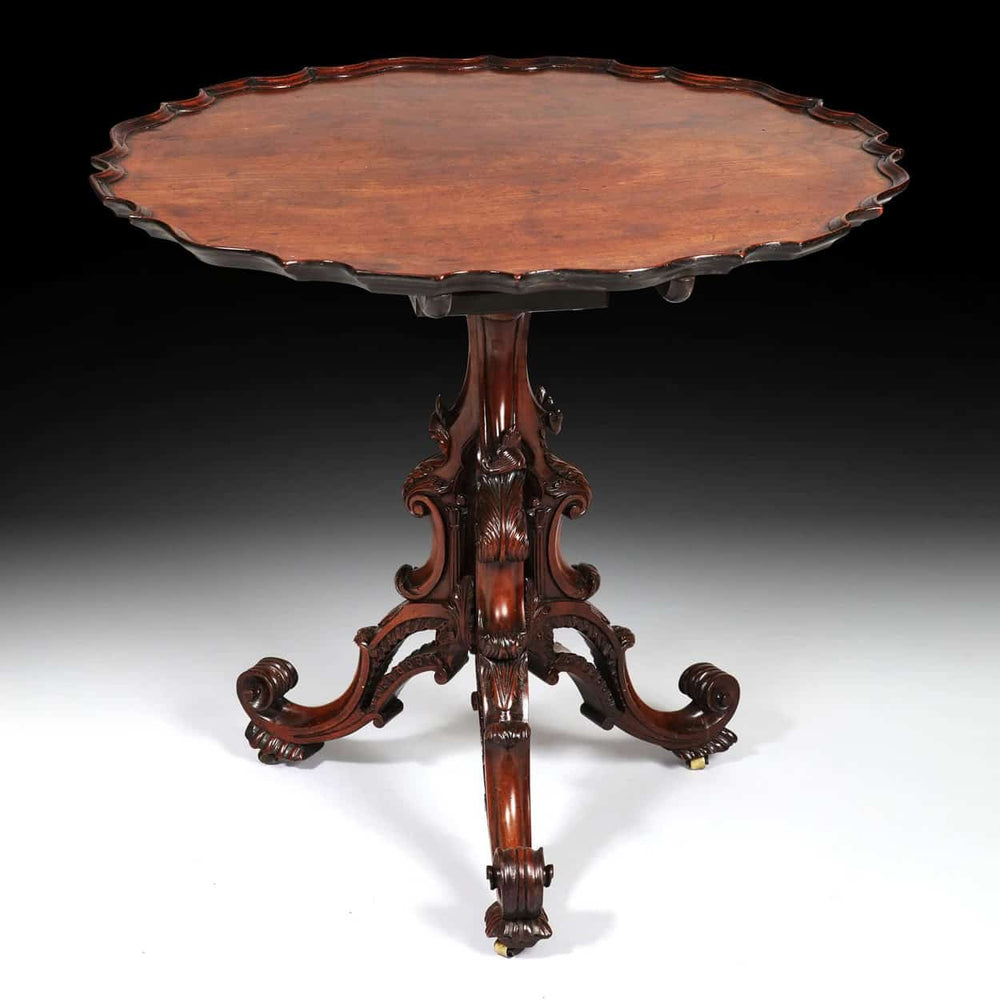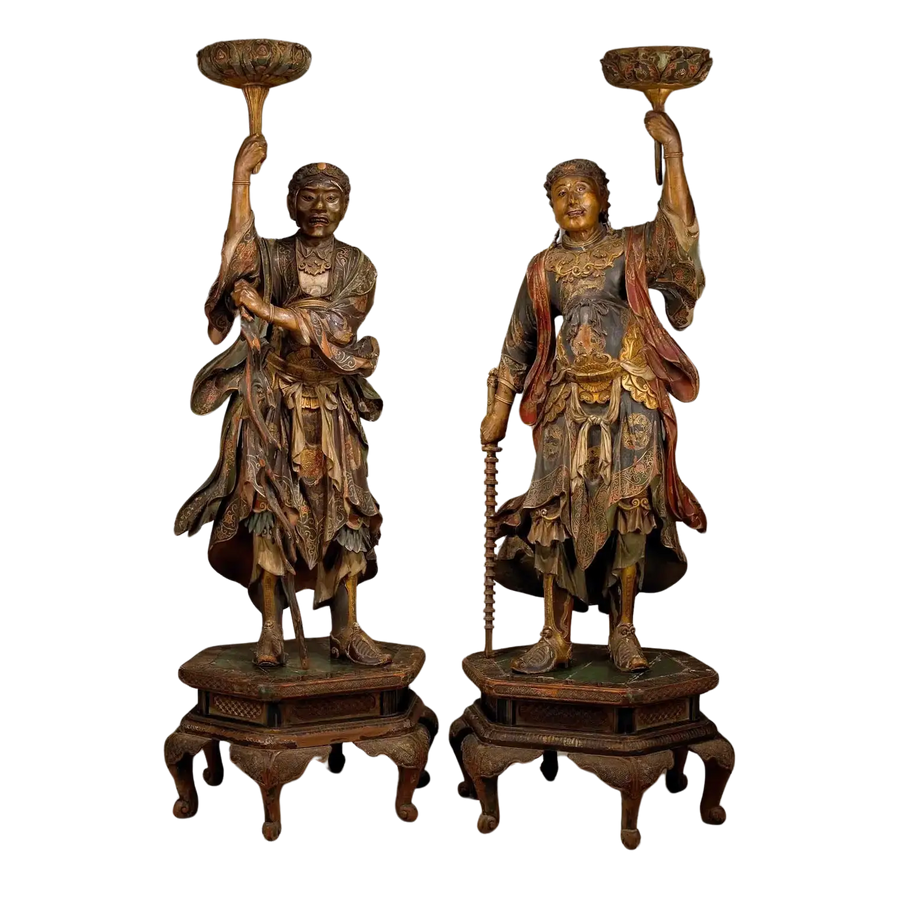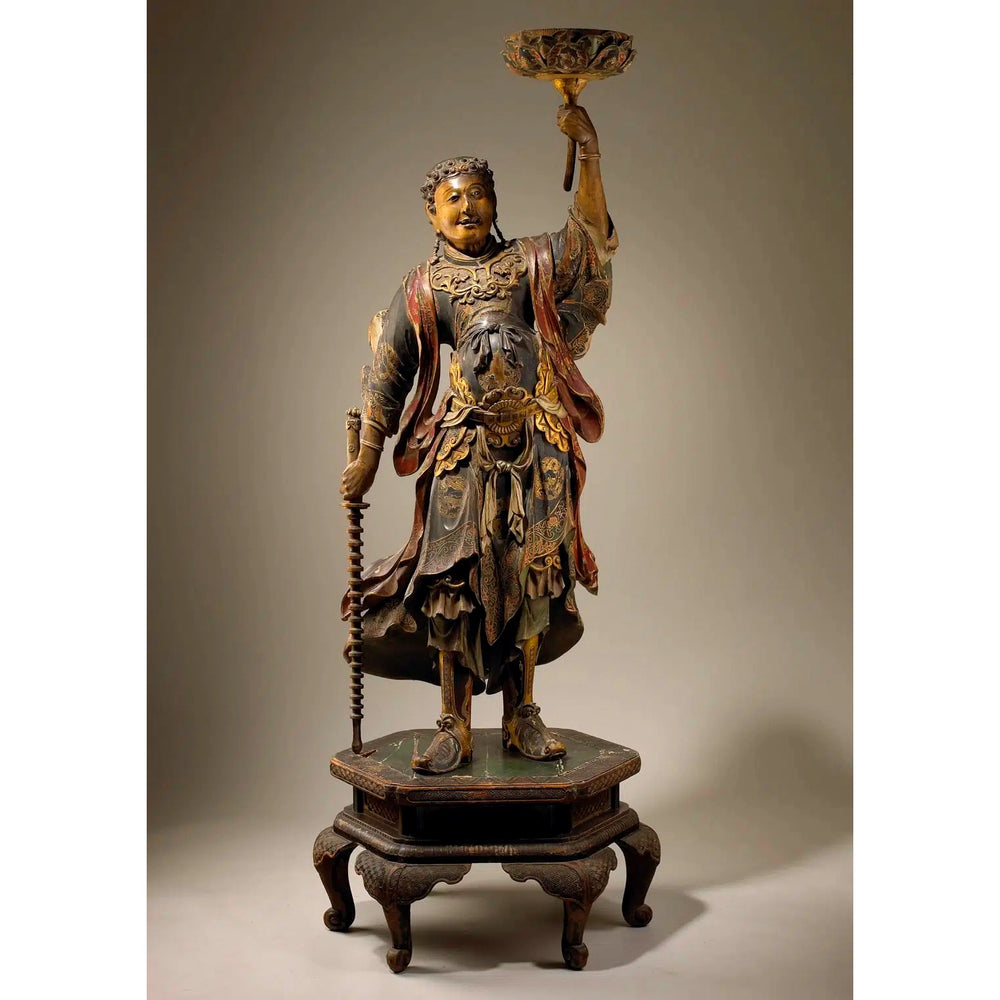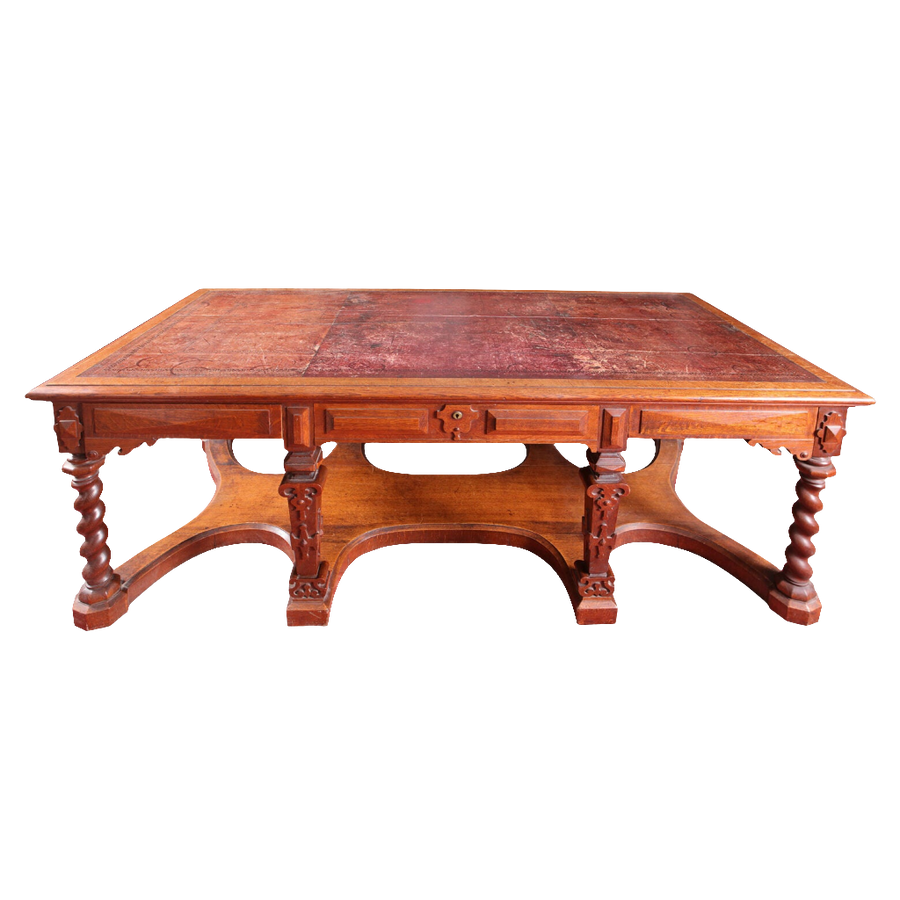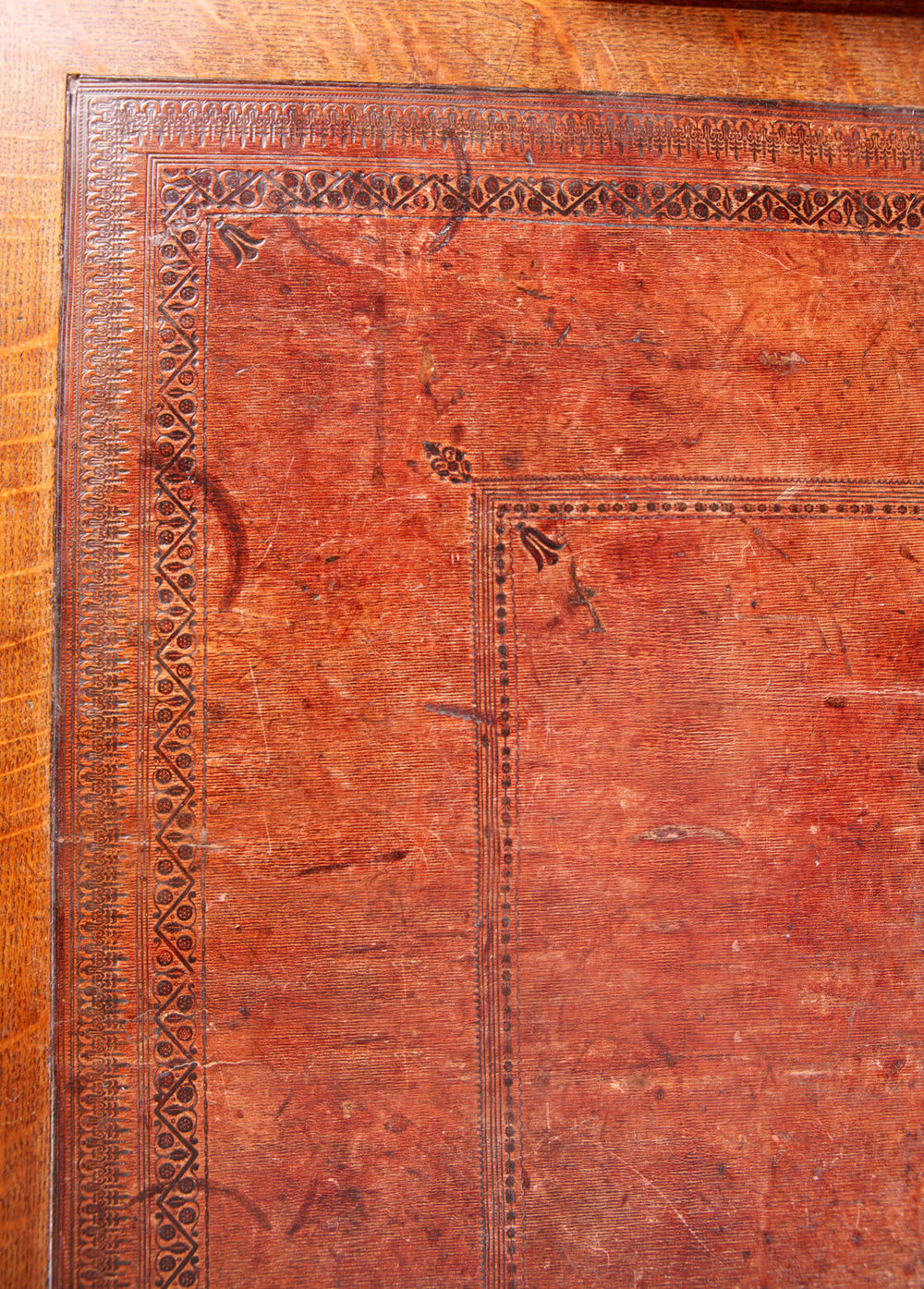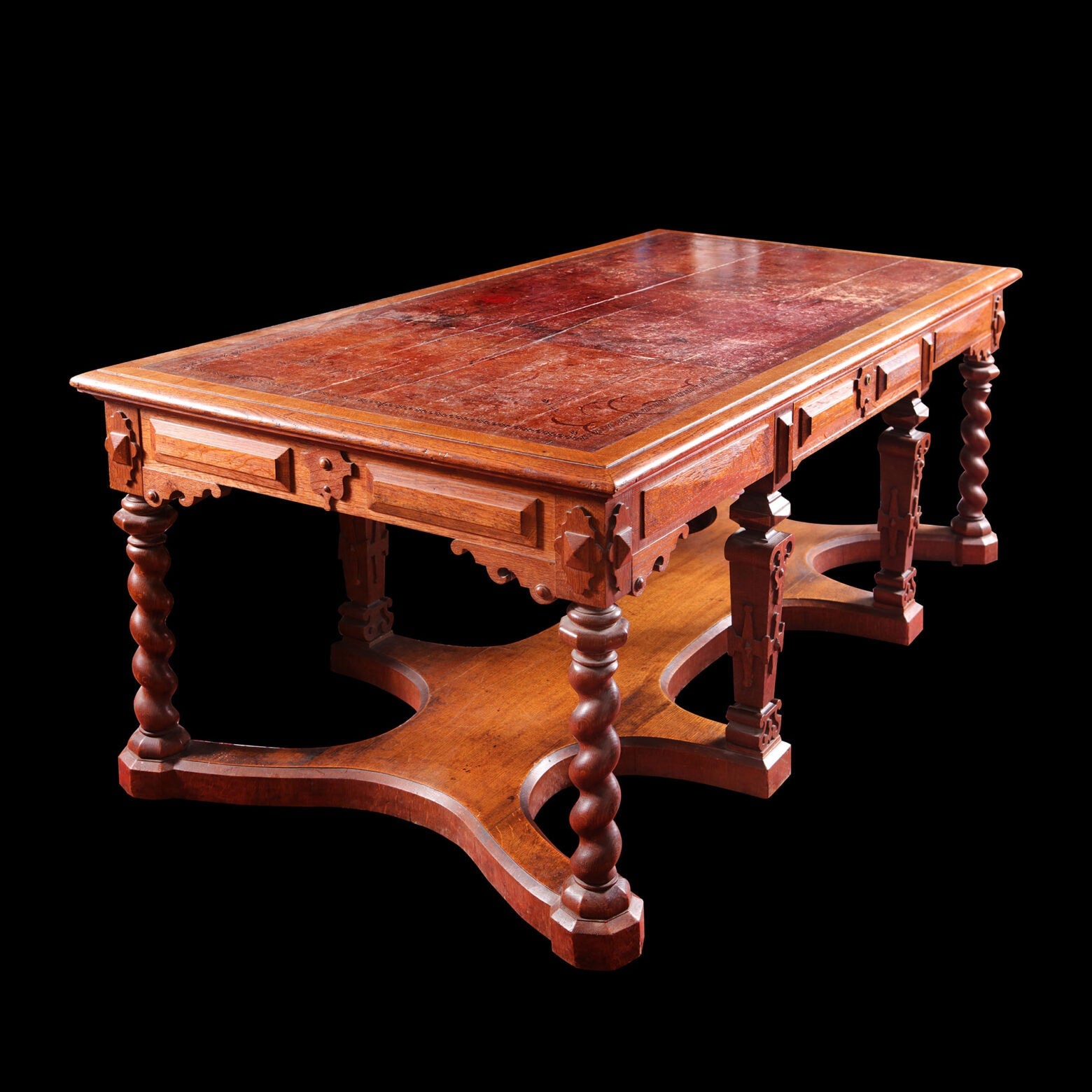
Richard Bridgens was an influential English designer whose career spanned furniture, architecture, and published works. Born in 1785, Bridgens’ work reflected the eclectic taste of the early 19th century, blending Gothic revival motifs, baronial grandeur, and practical modernity. His career path took him from London’s design circles to the colonial Caribbean, leaving behind a varied and fascinating legacy.
Early Career and Collaboration with George Bullock
Bridgens was apprenticed to the celebrated cabinetmaker George Bullock, whose innovative approach to design left a deep impression on him. Bullock’s preference for richly carved Gothic and baronial furniture in dark woods strongly influenced Bridgens’ style.
Following Bullock’s death in 1818, Bridgens assumed responsibility for several important commissions, including the furnishing of Abbotsford House for Sir Walter Scott, Battle Abbey, and Aston Hall in Birmingham. These projects reveal his mastery in combining romantic Gothic forms with functional elegance.
Move to Trinidad and Public Works
In 1826, Bridgens’ life took a new direction when his wife Maria Ann Shaw inherited the St Clair estate in Trinidad. Relocating there with his family, he was appointed Superintendent of Public Works. In this role, he designed key government offices in Port of Spain, adapting his architectural knowledge to a colonial context.
Published Works
Bridgens also made his mark as an author and illustrator. His “Furniture with Candelabra” (2nd edition, 1831) documented his furniture designs, while “West India Scenery” (1836) offered vivid depictions of Caribbean landscapes, architecture, and society. These works combined artistic skill with a documentary eye, ensuring his reputation not only as a designer but also as a chronicler of cultural life.
Legacy
Richard Bridgens died in November 1846, leaving behind a diverse body of work that bridged decorative arts, architecture, and literature. His designs, particularly those influenced by Bullock, remain admired for their blend of historic revival styles and contemporary sensibilities. His contributions in both Britain and Trinidad exemplify the cosmopolitan reach of early 19th-century design and continue to be studied for their artistic and cultural significance.





